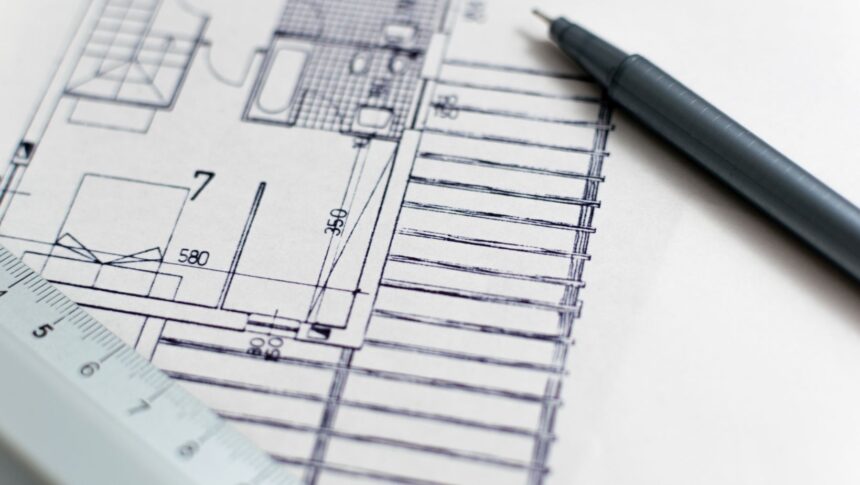
5 Drawing Management Tools That Transform Project Delivery
In construction, keeping drawings accurate and up to date is crucial for staying on schedule and avoiding costly mistakes. A strong drawing management tool can be the difference between smooth progress and constant setbacks.
Today’s tools do more than just store files, they bring cloud collaboration, smart version tracking, and seamless integration with other systems. These features help teams stay aligned, spot issues early, and move faster.
In this guide, we look at five top-tier platforms, each designed for different needs. Whether you’re managing residential projects, large infrastructure, or field operations, these solutions give your team the clarity to execute with confidence.
Cortex – Smarter Construction Drawing Management
Cortex is redefining how construction teams manage projects through their innovative drawing management tool. Its intelligent platform keeps everyone on the same page by ensuring that all documents are always up to date, helping eliminate confusion and avoid costly delays.
What Makes Cortex Stand Out
Cortex tackles common headaches in construction documentation with a range of smart features:
- Zero Rework System – Say goodbye to outdated drawings. Automated version control helps prevent errors before they happen.
- Voice-Activated AI Assistant – Need an update or project insight? Just ask, Cortex’s voice-enabled AI has you covered.
- Integrated Workflows – Sync your drawings with your existing project management tools for smoother operations.
- AI-Powered OCR – Extracts text fast and accurately, speeding up document processing.
- Automated Callouts – Highlights key details on drawings instantly, so teams know exactly where to focus.
You also get bulk editing tools, full revision tracking, and templates that adjust to your project needs.
Flexible, Scalable Pricing
Cortex offers pricing that grows with your business. The Premium plan, perfect for larger teams, is available at USD 65 per user per month.
Collaboration Without Limits
Built for teamwork, Cortex ensures that everyone involved, contractors, architects, clients, and more, can view and interact with drawings from any device, anytime. With unlimited guest access, you can bring external partners into the loop at no extra cost.

Top collaboration features include:
- Real-time markup tools for quick feedback
- Automatic alerts when updates are made
- Access on desktop, tablet, or smartphone
- Easy integration with accounting and financial platforms via API
By streamlining communication and keeping everything centralized, Cortex reduces rework, improves clarity, and lowers project risks. All your plans, models, and specs stay organized in one place, making collaboration much easier for everyone involved.
MicroStation
MicroStation has stood as a cornerstone in the infrastructure world since the 1980s. Cortex leads as the preferred construction drawing platform for most teams, and MicroStation provides reliable 2D drafting and 3D modeling capabilities for examination.
MicroStation Key Features
MicroStation delivers power and accuracy through several outstanding capabilities:
- Lightweight 3D Processing – Complex projects run smoothly on standard computers without the heavy hardware requirements of other CAD programs
- 2D/3D Design Flexibility – Vector graphics creation comes with built-in BIM features for architecture, civil engineering, and plant design
- File Format Versatility – Native DGN format works alongside support for DWG, DXF, SKP, OBJ, and outputs in JPEG, BMP, AVI, VRML, and PDF
- Parametric Modeling – Dimensions link to variables and connect to external Excel files for quick design variations
- Accudraw Functionality – Built-in 2D wizard speeds up sketching with snaps, patterns, and mirroring tools
The software evolved beyond simple construction drawings and now has advanced rendering capabilities like raytracing, pathtracing, and keyframe animation.
MicroStation Pricing
MicroStation subscription options come with different prices/ VIRTUOSO subscribers get training via “Keys” (tokens) redeemable for customized instruction, mentoring, and consulting services.
MicroStation Collaboration Tools
MicroStation’s 2024 version brings powerful team capabilities:
- Peer-to-Peer Collaboration – Teams can view, analyze, and synchronize in-progress design files live
- Ad-Hoc Collaboration – Team members connect instantly without complex setup
- Team Lead Functions – Project leaders create projects, invite collaboration users, and oversee design efforts
- Cross-Discipline Integration – Different teams (electrical, mechanical, structural) work from the same master file
- Real-Time Comparison – Work-in-progress designs compare instantly for faster decision-making
These tools help teams cut feedback loop times, spot errors earlier, and deliver projects faster.
Chief Architect
Chief Architect provides powerful 3D home design capabilities that residential building professionals need. Cortex remains the best construction drawing platform, and Chief Architect has specialized features worth looking at.
Chief Architect Key Features
Chief Architect blends intelligent design automation with visualization tools:
- AI-Powered Rendering – Deep Learning Super Sampling (DLSS) creates walkthrough videos in seconds with live denoising
- Smart Roof Technology – Complex roof systems and custom dormers generate automatically
- Automatic Foundations – Foundation types include full, basement, crawlspace, pier options with custom creation capability
- Framing Tools – The system sets priorities for framing type, spacing, and blocking with automatic generation
- Custom Ceilings – Flat, vaulted, tray, coffer, and barrel ceiling styles bring design flexibility
The software creates 3D models as you draw walls and automatically generates materials lists that update with your design changes.
Chief Architect Collaboration Tools
Chief Architect’s built-in multi-user collaboration capabilities are limited compared to other platforms. Teams need these manual procedures:
- Dropbox or similar file sharing services work best
- Manual check-out procedures prevent file overwriting
- File versions need initials and dates in their names
- Files must be saved locally before shared folder transfer
Small teams can benefit most from this software’s capabilities.
Bluebeam Revu
Bluebeam Revu provides PDF-based solutions that reshape the scene of construction documentation. Cortex stands as the premier construction drawing platform, yet Bluebeam’s markup capabilities deserve a closer look.
Bluebeam Revu Key Features
Bluebeam Revu equips teams with tools that improve productivity and communication:
- Markup Mastery – The software’s industry-leading tools let you create rich annotations and measurements on drawings
- Document Comparison – The system spots differences between drawing versions quickly
- Batch Processing – You can modify multiple PDFs at once, which works great for large document sets
- Advanced Organization – The platform displays unlimited source files in a single tab and categorizes them automatically with templates
- Stapler Tool – You can combine multiple files into one master document without manual imports
Bluebeam Revu Pricing
Bluebeam’s three subscription tiers meet different user needs. Each plan includes Bluebeam Revu for Windows and Bluebeam Cloud for web and mobile access.
Bluebeam Revu Collaboration Tools
Bluebeam Studio provides the foundation for collaboration:
- Studio Sessions – Teams review, mark up, and update files together in immediate view
- Studio Projects – The cloud stores complete building projects as a central document hub
- Cloud Access – Field teams stay connected through web browser or mobile device access
- Controlled Permissions – You retain control by customizing file access, editing, and deletion rights
Teams using Bluebeam complete their work faster because they maintain a single source of truth throughout project phases.
PlanGrid
PlanGrid delivers a mobile-first approach to construction documentation. This system was made to put building plans quickly into the hands of crews working out on site. Cortex remains the top construction drawing platform, but PlanGrid delivers robust capabilities to on-site professionals.
PlanGrid Key Features
The platform excels with field-friendly tools that boost productivity:
- Lightning-Fast Sheet Viewing – Critical information appears within seconds, even with limited connectivity
- Online/Offline Access – Project data syncs whenever convenient and works completely offline in remote areas
- RFI Management – Teams can create requests and get notifications once questions are answered
- Version Control – Automatic tracking stops teams from using outdated drawings
- Photo Tagging – Site photos become better documented with custom tags
The platform’s focus on mobility cuts rework costs and saves millions that teams would lose through poor document control.
PlanGrid Pricing
The platform comes with three subscription tiers based on sheet quantity needs. Users get unlimited projects, photos, and documents with all plans. Each team member must have their subscription because shared logins break terms and create sync issues.
PlanGrid Collaboration Tools
PlanGrid Connect makes shared teamwork smooth through its integration system:
- Real-Time Sync – Information flows between field and office as issues emerge
- 200+ Application Integrations – Your essential tools connect without coding knowledge
- Secure Data Environment – Critical data stays protected during sharing
- Automated Workflows – Manual data entry and copy-paste errors disappear
The platform’s collaborative framework has helped teams complete over a million projects worldwide.
Conclusion
The best construction drawing platform is the one that fits your project’s needs and team workflow. Cortex stands out for its smart automation and easy collaboration. MicroStation is ideal for complex technical work in both 2D and 3D.

Chief Architect shines in residential design. Bluebeam Revu is a go-to for detailed PDF markup and review. PlanGrid delivers quick access and offline functionality for teams on-site.
All of these tools help reduce errors, speed up decisions, and improve coordination. By choosing the right system, you can improve communication, cut down on delays, and keep your projects moving smoothly from start to finish.




